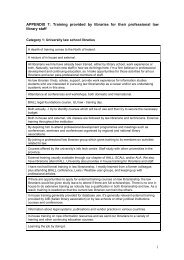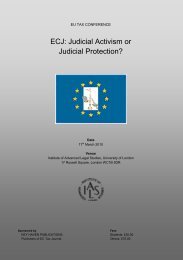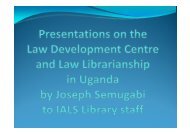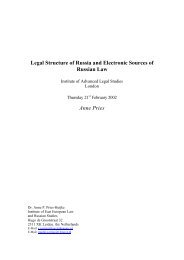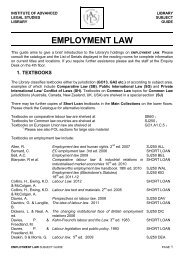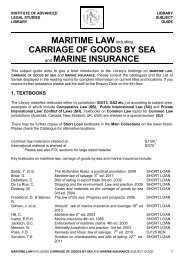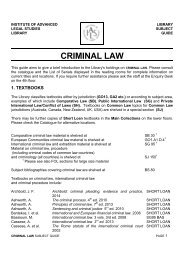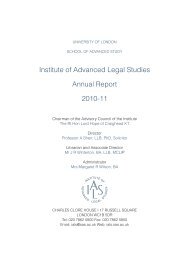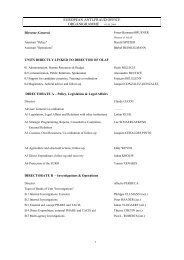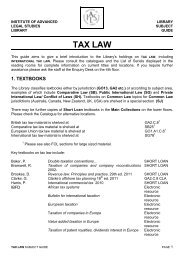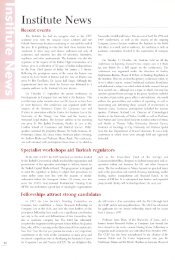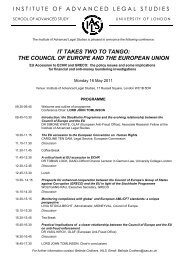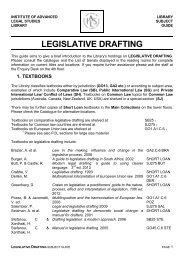a thesis - Institute of Advanced Legal Studies
a thesis - Institute of Advanced Legal Studies
a thesis - Institute of Advanced Legal Studies
Create successful ePaper yourself
Turn your PDF publications into a flip-book with our unique Google optimized e-Paper software.
102 IMPLIED TRUSTS.<br />
CHAPTER XIV.—RESULTING TRUST ON JOINT PURCHASE<br />
OR MORTGAGE.<br />
WHERE property is conveyed to two or more persons as<br />
joint tenants, who, being purchasers, contribute the<br />
purchase-money in unequal shares, or, being mortgagees,<br />
contribute the mortgage money in either equal or<br />
unequal shares, on the death <strong>of</strong> any <strong>of</strong> the joint tenants<br />
the survivor or survivors hold so much <strong>of</strong> the property in<br />
trust for the representatives <strong>of</strong> the deceased joint tenant<br />
as is proportionate to the amount <strong>of</strong> the purchase-money<br />
or mortgage money, as the case may be, contributed by<br />
him.<br />
The third class <strong>of</strong> resulting trusts was definitely established by<br />
the case <strong>of</strong> Lakcv. Gibson (1729, 1 Eq. Ca. Abr. 294, pi. 3), where<br />
Sir Joseph Jekyll decreed that five persons to whom land had<br />
been conveyed jointly were tenants in common in equity, " and<br />
that the survivor should not go away with the whole ; for then it<br />
might happen that some might have paid or laid out their share <strong>of</strong><br />
the money, and others who had laid out nothing go away with the<br />
whole estate."<br />
" When two or more purchase lands and advance the money in<br />
equal proportions, and take a conveyance to them and their heirs,<br />
this is a joint tenancy ; that is, a purchase by them jointly <strong>of</strong> the<br />
chance <strong>of</strong> survivorship, which may happen to the one <strong>of</strong> them as<br />
well as to the other ; but where the proportions <strong>of</strong> the money are<br />
not equal, and this appears in the deed itself, this makes them in<br />
the nature <strong>of</strong> partners; and however the legal estate may survive,<br />
yet the survivor shall be considered but as a trustee for the others<br />
in proportion to the sums advanced by each <strong>of</strong> them."<br />
This was affirmed by Lord Chancellor King under the name<br />
Lake v. Craddock in 1732 (3 P. Wms. 158).



